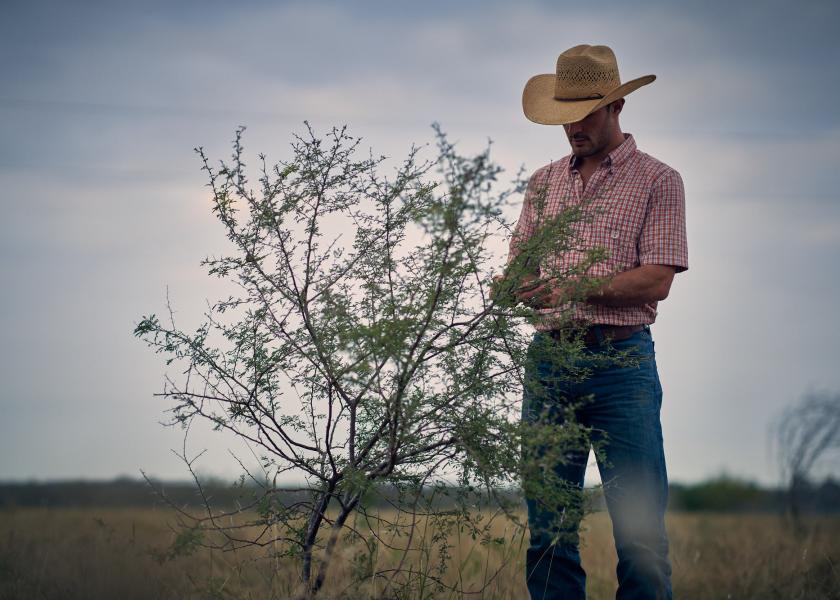Herbicide Offers Effective Mesquite Treatment

Application timing is critical when treating invasive brush species. To help ranchers restore their rangeland for the long term, the Range and Pasture business of Bayer is encouraging ranchers in Arizona, New Mexico, Oklahoma and Texas to closely monitor mesquite foliage and apply Invora® Herbicide when conditions are appropriate. Research shows late spring to early summer is the best time to treat mesquite.
“Invora provides much better mesquite root kill than the industry standard, resulting in the reduction of mesquite canopy cover for 10 or more years,” said Case Medlin, Western region stewardship manager for the Range and Pasture business. “We know ranchers are in this business for the long haul, so we are thrilled to provide them with a cost-effective, long-term solution to treat undesirable brush, resulting in healthier and more productive rangeland.”
Invasive brush species like mesquite deplete the land’s resources. Ranchers can determine its impact on rangeland based on canopy cover. The more canopy cover on rangeland, the more significant the problem. When rangeland approaches 25% canopy cover of invasive brush, sunlight, water and nutrients needed for forage production are instead utilized by the undesirable brush.
Real-world trials show that Invora reduces and maintains canopy cover below 3% for eight years after one application while resulting canopy cover in other treatments recovers to near 25% during this same time.
“The one word I would use to describe Invora is ‘effective,’” said Terry Blankenship, procurement director at Welder Wildlife Foundation. “The response we received shows that the product was effective based on the mortality rates. For what we were trying to accomplish, it did a great job.”
"Invora has a similar application process to other brush control treatments, but it is more effective long term because it eliminates invasive brush while other treatments only stunt it,” said Medlin. “Invora is the long-term, economical choice for invasive brush control.”
Late spring to early summer is when mesquite foliage is mature with a dark-green color. This is the best time to treat mesquite with Invora because the leaves are the avenue into the root of the plant.
Ranchers in Arizona, New Mexico, Oklahoma and Texas can visit Invora.com to learn more and sign up for updates about Invora.







